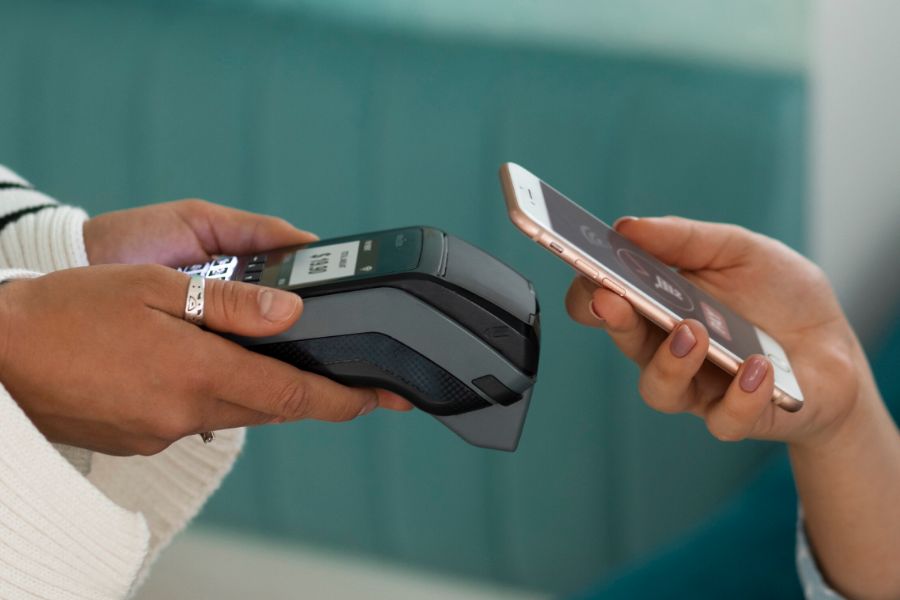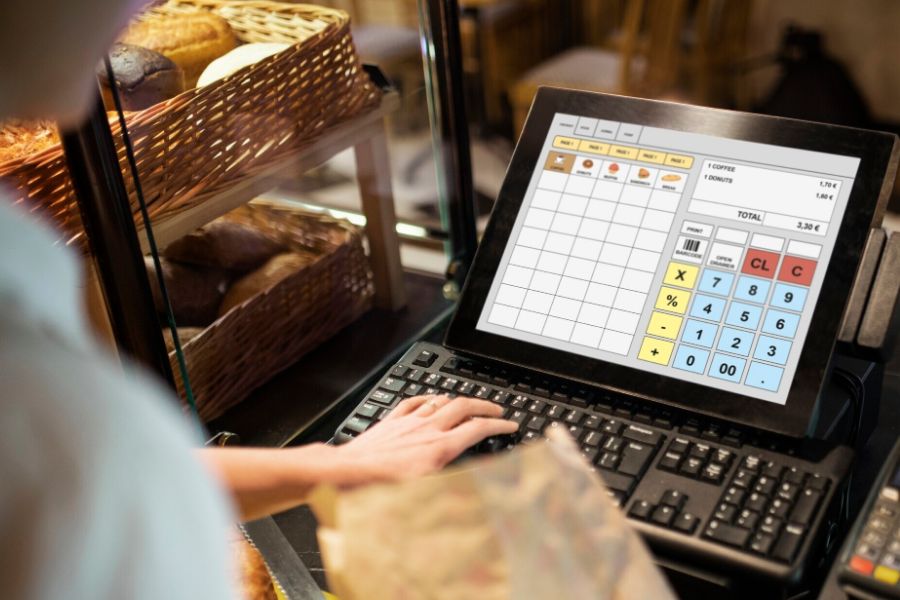Finances Online says the total mobile POS transaction value was over a million in 2020. It shows that more retailers use mobile devices instead of giant POS hardware to process transactions. However, most mobile POS apps (mPOS) are compatible with the iOS operating system instead of Android. Let’s discover why retailers hesitate to use an Android mobile POS system.
What is a mobile POS app?
A mobile POS application is a portable POS (Point of sales) system on a smartphone or tablet. It can process payments for on-the-go businesses like fast food, coffee shops, and restaurants.
How does a mobile POS app work?
The simplest version of a mobile POS app can operate as a stand-alone device that’s linked to the retailer’s bank account to process payments. Depending upon the software, mPOS varies from the payment processor to the fully integrated POS system with various functions, such as inventory and customer management.
Why do more and more retailers fall in love with a mobile POS system?
So, the mobile-driven POS system has become increasingly popular among businesses due to its considerable advantages. Here is a short list of mPOS benefits that we have summarised to get you an insight.
Cost-effective
Traditional POS system is worth its weight in gold because of their importance to business and their high price. In contrast, a mobile POS app only requires a tablet or smartphone instead of a bulky stationary POS terminal.
Fully integrated with POS software
As mentioned above, some POS vendors integrate the whole POS system into the mobile device. Mobile POS apps now can offer a wide range of functions beyond receiving and processing debit and credit cards. You might see outstanding features in an advanced version of mPOS, such as managing inventory, storing customer data, giving comprehensive sales reports, and managing employees.
Portable
One of the biggest drawbacks of an on-premise POS system compared to mPOS is its size and weight. The old POS system was rooted in one spot and you could not move them.
Thanks to mPOS, a salesperson can now greet customers at the door and bring a POS system to a customer’s location to help the customer search for items, scan barcodes, and do checkout.
Why do most mPOS developers not prefer Android?
Most mobile POS apps work only on the iOS operating system instead of Android. According to Counterpoint Research, Apple is still leading the US smartphone market with a 40% market share in the third quarter of 2020.
More importantly, Android is more targeted by hackers, so many POS providers are concerned about the security of this operating system.
Android relies on open-source codes, not a closed system like Apple’s. Open-source code is designed to be publicly accessible—anyone can see, distribute, and even modify the code when they see fit. It means that owners of Android devices can play around with their phones and tablet operating systems. There will be security weaknesses if Android users tinker too much with the device. At that time, hackers can find that device because of open-source software and attack the vulnerability in that code.
Even so, plenty of businesses still use the Android operating system, especially in Asia. For instance, according to StatCounter, the market share of Android in the most populous market in the world, China, was over 71%, while iOS is at 27%. In Southeast Asia, Android was even dominant over iOS.
That’s because Android is considered cheaper and more independent than iOS. If a customer chooses Android, various options, such as Samsung, Huawei, and Nokia, are available at different prices instead of a costly Apple device. Besides, a user of iOS also heavily depends on Apple’s server.
An mPOS plays nice with both iOS and Android
ConnectPOS is a mobile POS system that helps you to sell on the go and manage multi-stores from anywhere. It is compatible with all mobile devices (iOS and Android) and PC (Windows and Mac OS) for retailers to flexibly use any smartphone or tablet to run a POS system.
Cloud-based ConnectPOS also boasts many features, such as customer and order management, checkout process, payment, inventory, and staff management.
Final words,
Mobile POS apps stand for a reason. Thanks to its mobility, retailers are no longer tied to a countertop register, enabling them to communicate effectively with customers. However, store owners should consider picking a well-fitted mPOS that can run smoothly on your mobile operating system (iOS, Android, or both). Contact us for more information regarding the cloud-based POS system and global standard service!




